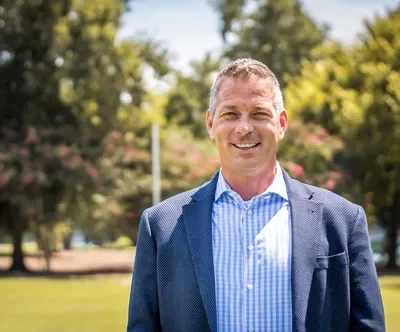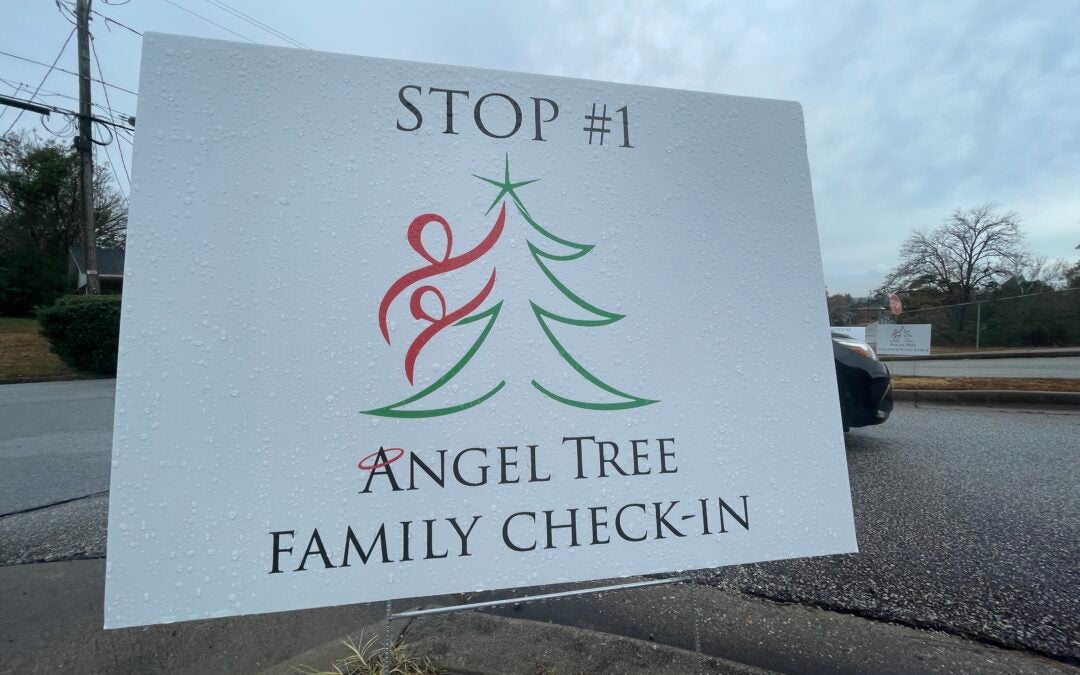A ventilator hooked up to two pairs of side-by-side pig lungs showed the vast contrast between a healthy pink lung and unhealthy blackened, tumor-ladened one.
“Everybody says ‘don’t smoke, don’t smoke, don’t smoke,’ but you never really see [the effects] of why,” said Elaine Kise, an Augusta University respiratory therapy student who took part in the white ribbon event for lung cancer awareness Wednesday at the Health Sciences campus. “You shouldn’t put anything into your lungs because it irritates your airways.”
The White Ribbon Fall Fest featured tables with large wooden ribbons painted white as well as tables with information about lung cancer and the risks of smoking.
Kise along with fellow volunteer and respiratory therapy student Dalton McPhee said they believed the image of the smoke-damaged lung would stay with college students longer than simply hearing “don’t smoke” again.
Kise and McPhee said it helps teach college students to not start the bad habit now because, down the road, the effects are much worse than the short-term pleasure nicotine induces.
Vaping is the new trend, and several at the festival said it can still cause life-threatening factors and healthy issues such as increased blood pressure, heart rate and stiffness of arteries which can lead to heart disease.
According to Chief of Thoracic Surgery and Director of the Lung Cancer Screening Program at the Georgia Cancer Center, Daniel Miller, young adults and teens fall into the habit without realizing how many chemicals vaping introduces into one’s body.
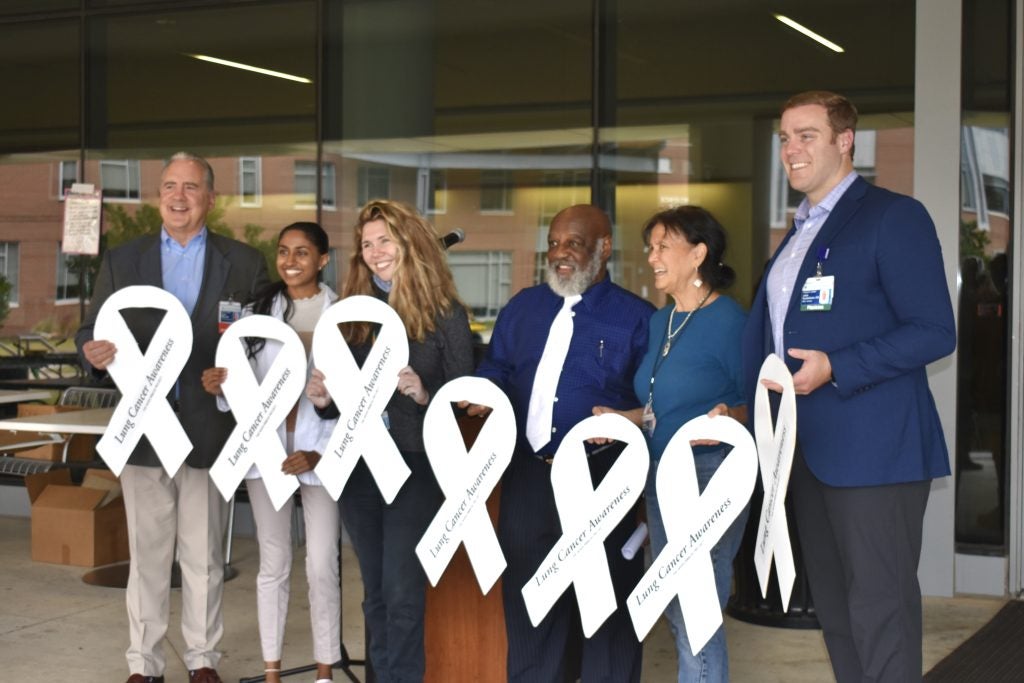
Miller said many young people believe vaping and electronic cigarettes are much safer to smoke than regular cigarettes; however, vaping, while not directly linked to lung cancer, can lead to a multitude of other health problems and oftentimes acts as a gateway to other addictive materials.
Rabih Bechara, director of Advanced Endoscopy Interventional Pulmonology Fellowship Program and Pulmonary Research co-director, said vaping oils are made with hundreds or different chemicals that can negatively affect one’s health, such as an increased chance of developing asthma and lung injury.
“We don’t know what these hundreds of chemicals do,” he said. “But it does predispose them to lung problems down the road.”
Lung cancer survivor, Joe Hurt, attended the event with his small therapy dog affectionately named Tater. After finding out he had stage two lung cancer and surgery to remove one of his lungs, Hurt said his cancer is in remission and he now supports other patients by bringing Tater to any event he can.
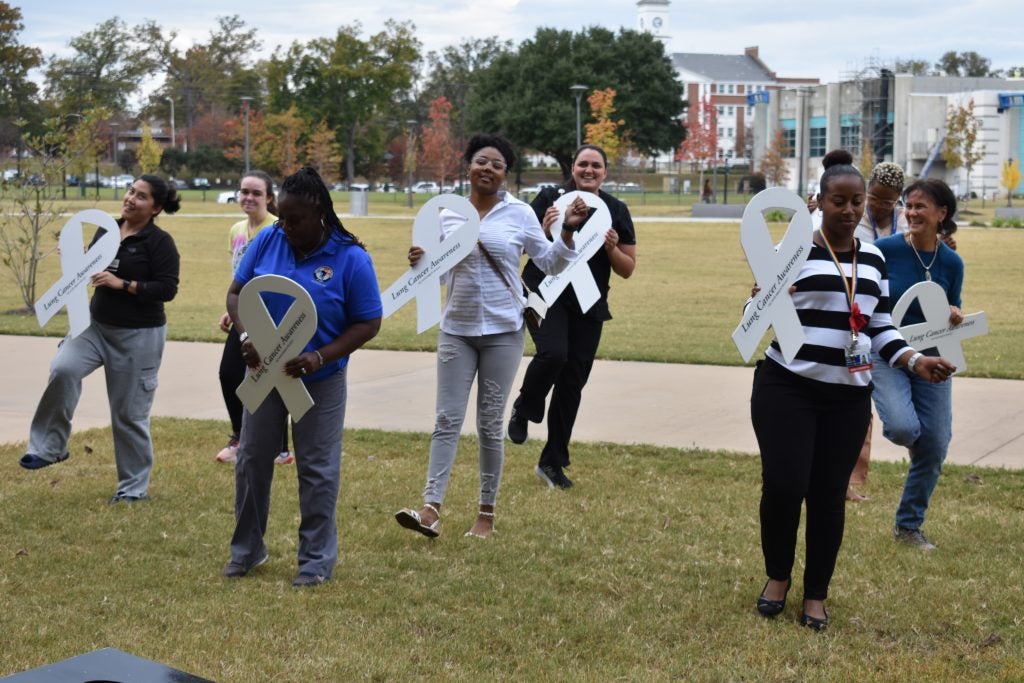
Hurt said he thinks it is important for others to know about lung cancer and support each other since many suffer and die from it.
Known as the “silent killer,” Miller and Bechara said it is important for more people to know that not everyone who develops lung cancer smoked in the past. Some people suffer from it even after living a cigarette-free life.
“Anybody can get lung cancer. Lung cancer is not only a disease of smokers – many of our patients have never smoked and they still develop it,” said Bechara. “Support your loved ones through cancer, and don’t put the blame on them just because they smoke. Sadly, it’s a disease, and we should fight [against] it.”
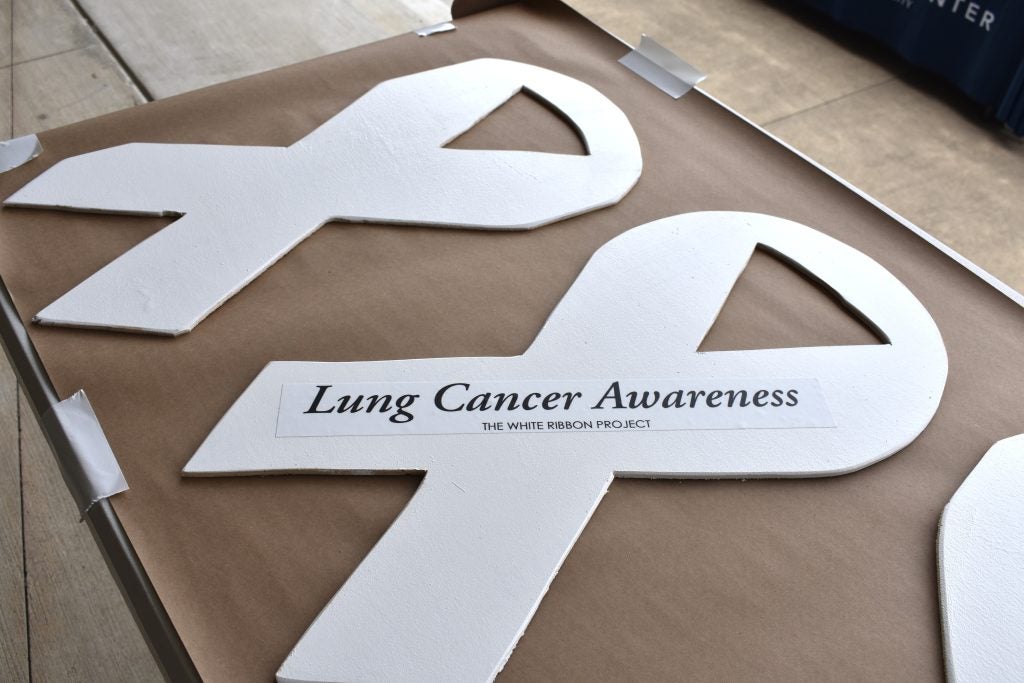
Although smoking does highly impact one’s chance of developing lung cancer, Bechara also said there are even some types of lung cancers that are more prominent in non-smokers.
With vague and non-specific symptoms, Bechara said older adults should pay attention to their symptoms and report them to their regular doctor – a persistent cough or shortness of breath might be the beginning of it.
Doctors at the event emphasized that no one is 100% safe against smoking – there are even patients in their 20s and 30s who suffer from the persistent disease.
Unexpected environmental attributes can also contribute to one developing cancer. However, people have a better chance of recovering when it is caught early on.
Miller said he recommends that people between 50 to 80-years-old get screened every year for lung cancer to be on the lookout and remain proactive against the disease – especially those who grew up around smokers or have a relative who had lung cancer.
Bethany Tompkins, a junior at Augusta University pursuing a degree in respiratory therapy, said she had relatives who suffered from lung cancer due to smoking and has seen the struggles people go through when they are trying to quit.
“It’s a lot easier for the younger generation now to have access to it and it’s a very popular thing,” she said. “But it’s a very preventable habit.”
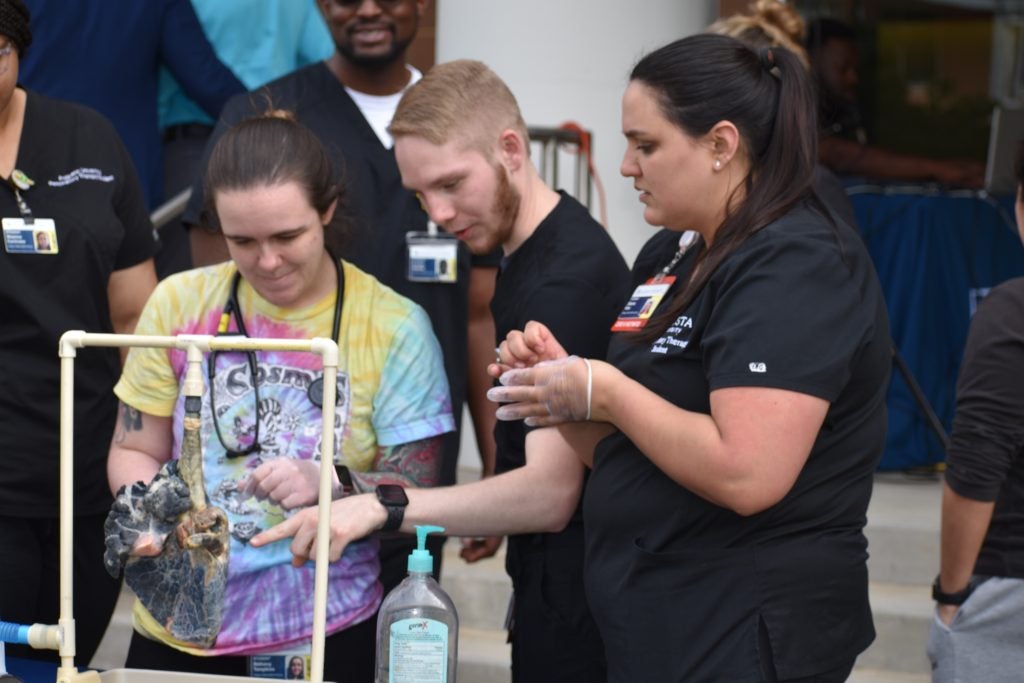
Although she has read the effects of smoking both cigarettes and vaping, Tompkins said it was still shocking to see the blackened lungs and it is an image that will definitely stick with her.
“Feeling the tumor inside the lungs was really interesting, and you could see how that side didn’t even inflate from the ventilator because of it,” she said.
In the words of Kise and McPhee, even if the event’s information just touched one person – it is one less person to possibly suffer from lung cancer and live a healthy life.
To further the efforts of the Georgia Cancer Center in preventing Lung cancer and catching it early in patients, Miller said the center is working to raise money for a mobile lung screening unit that will travel to reach those who are unable to drive to a screening facility.
For more information about lung cancer or to donate to the Georgia Cancer Center visit: https://www.augusta.edu/cancer/
Liz Wright is a staff writer covering education and general assignments for The Augusta Press. Reach her at liz@theaugustapress.com










